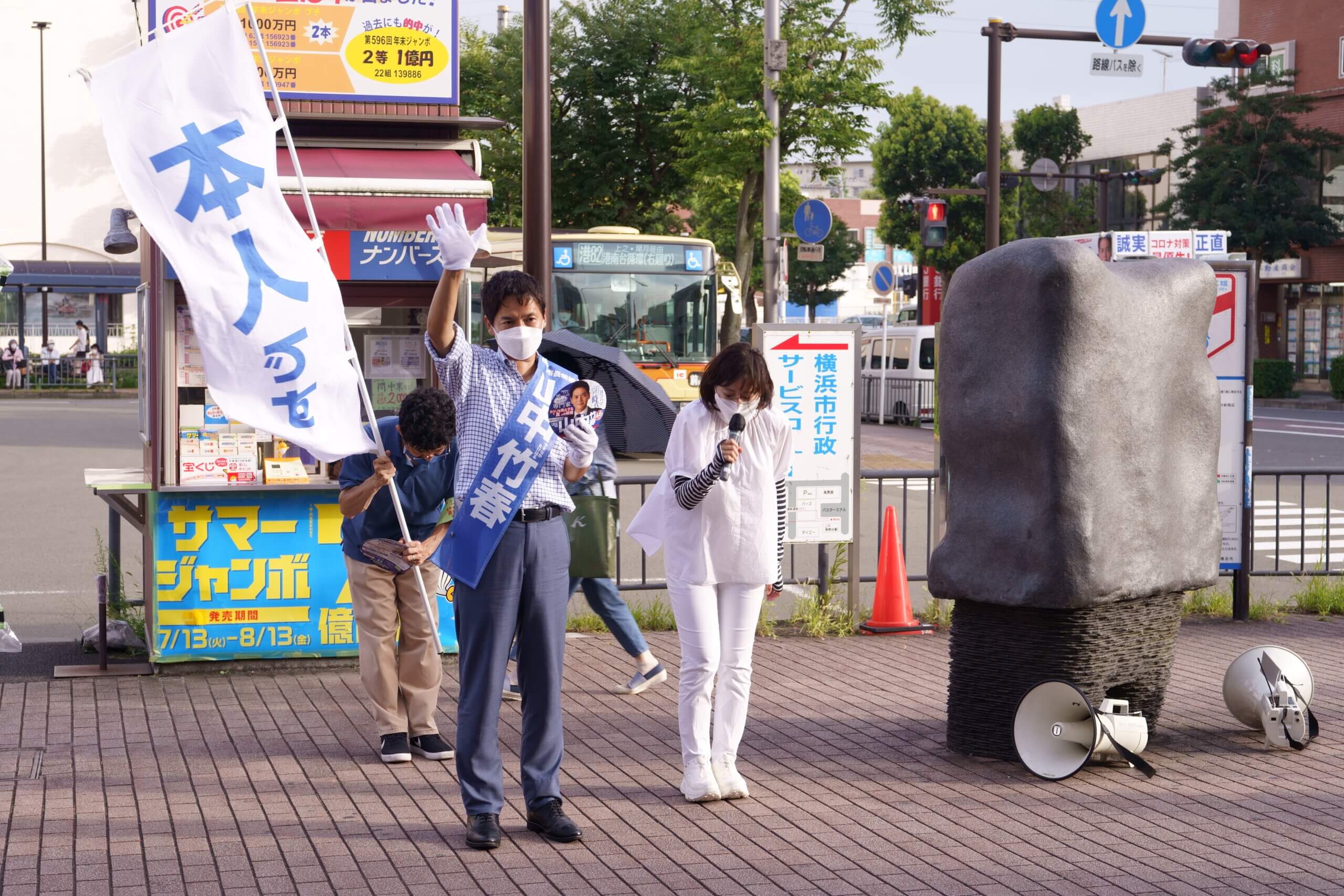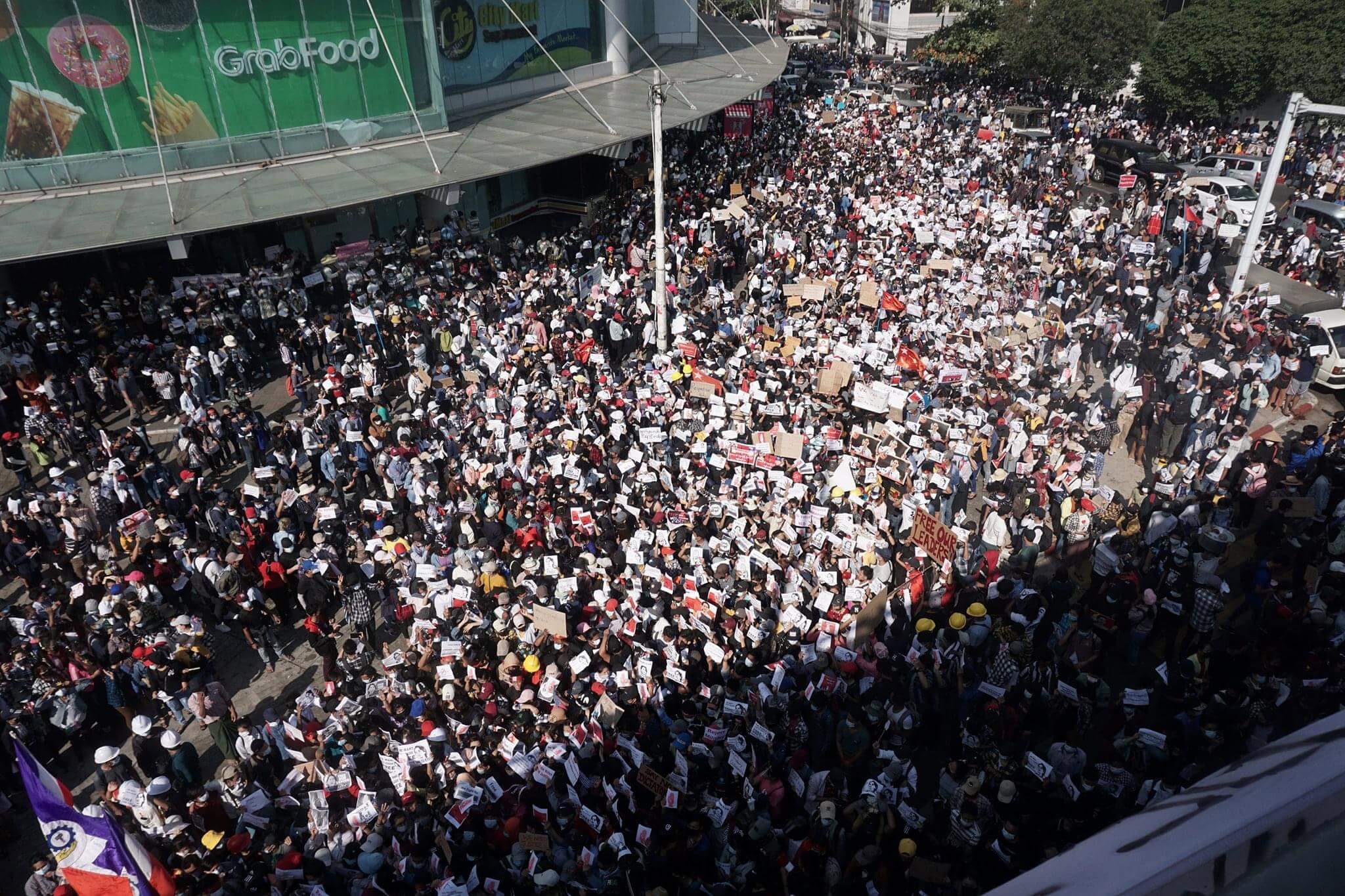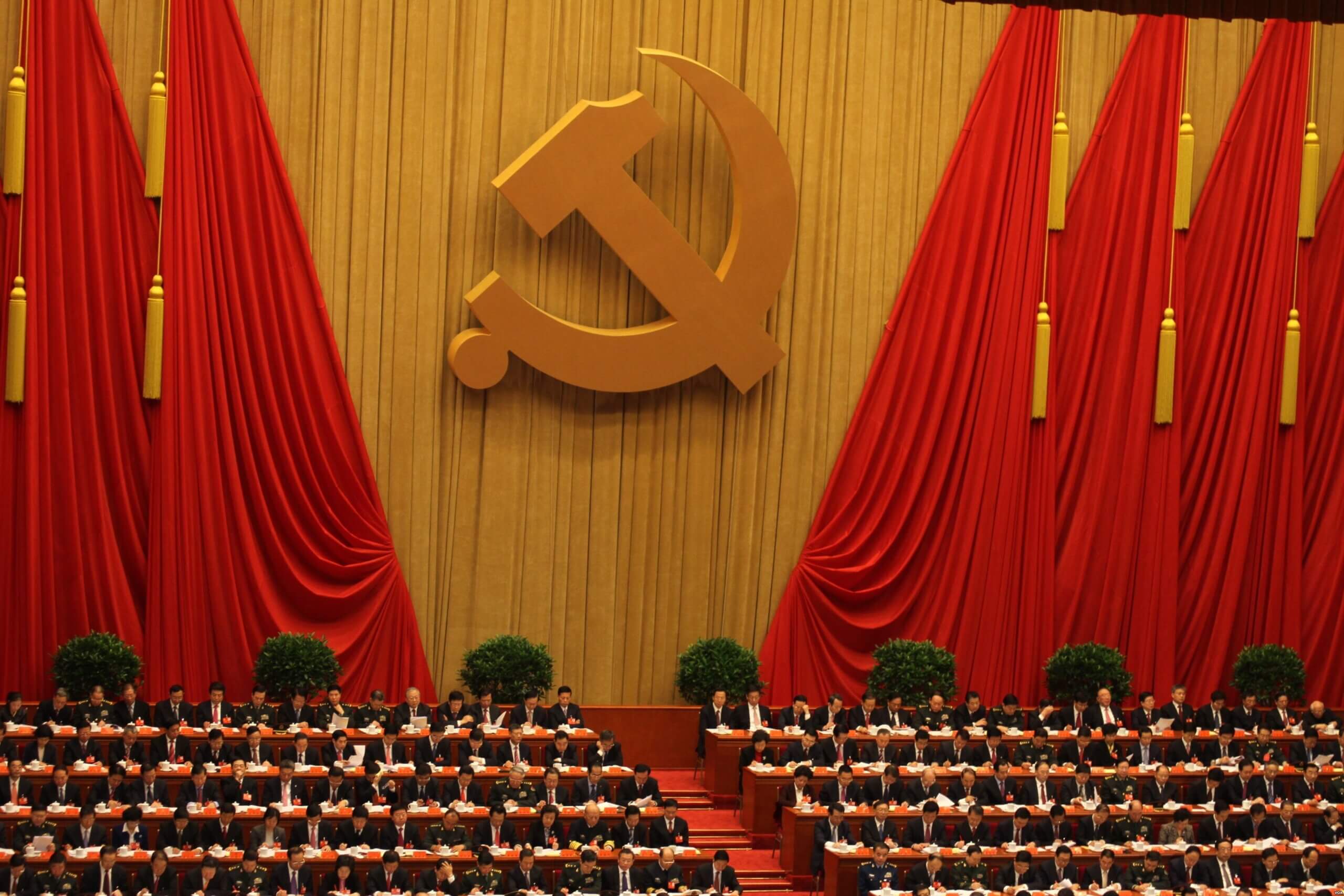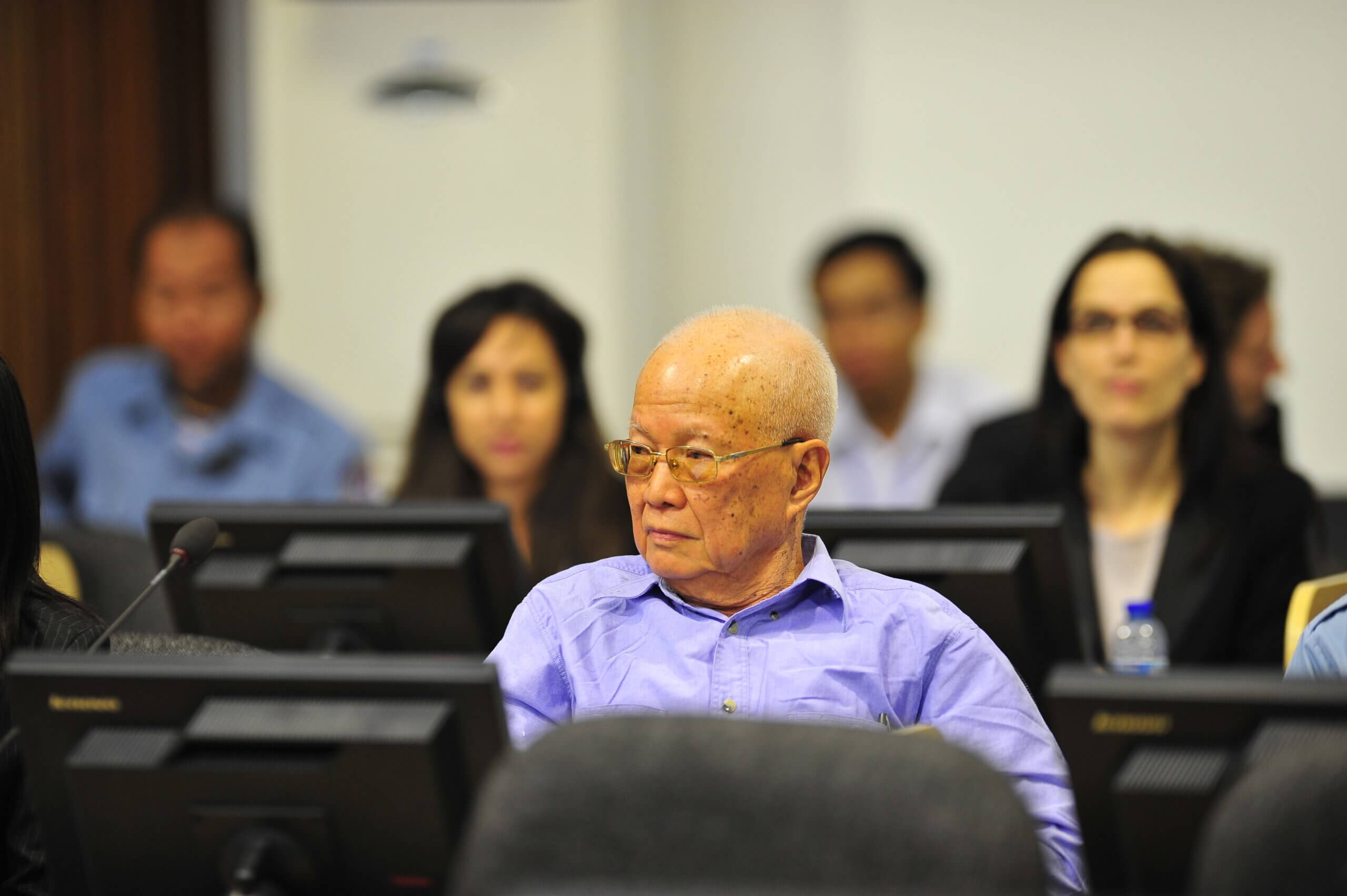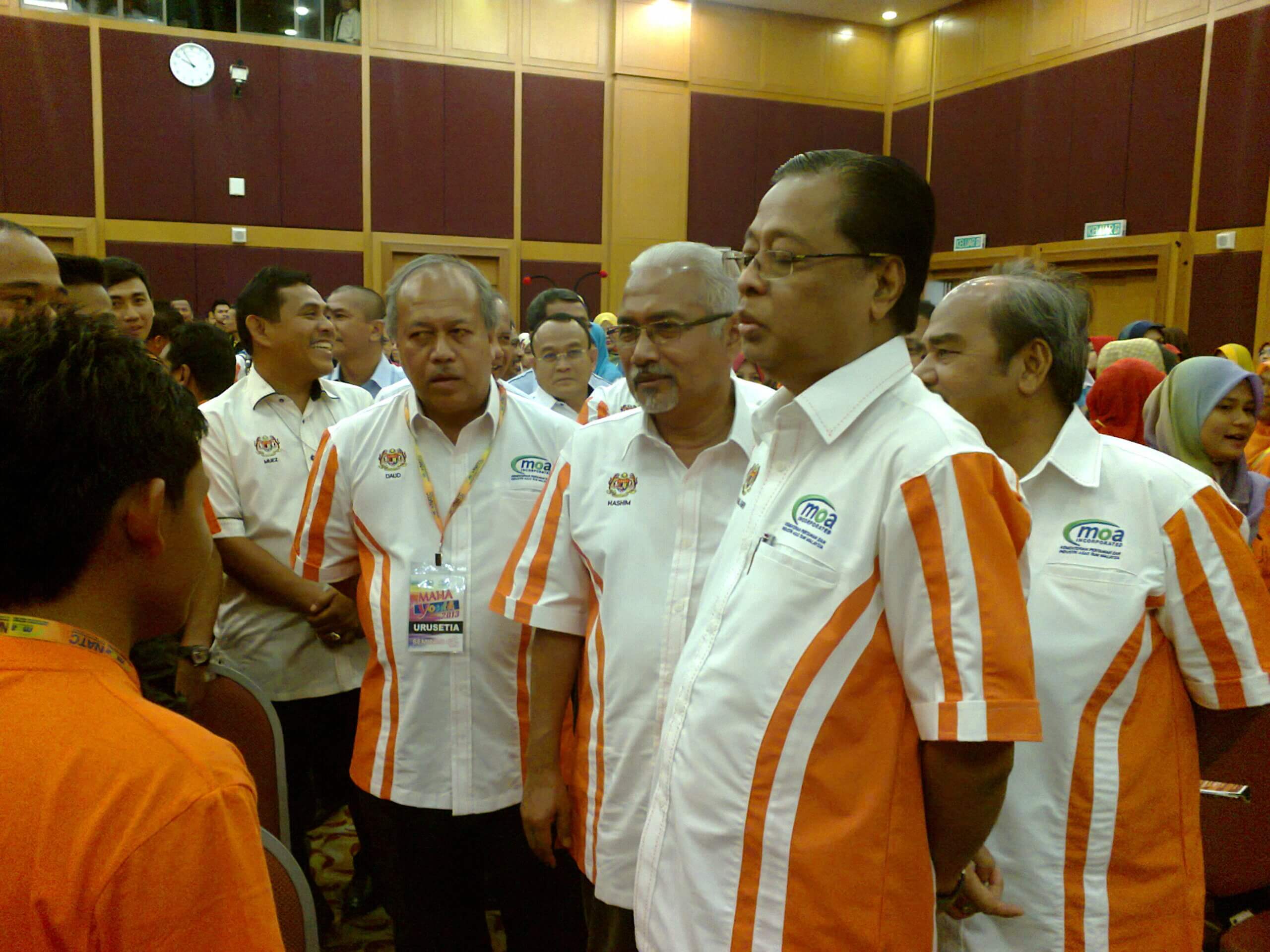Protest in Hlden earlier this year captured by Voice Of America via
Wikimedia commonsSince the military coup on February 1st, the country has moved from peaceful pro-democracy protests and work boycotts to
paramilitary movements. The death toll has risen to over
1,000, primarily made up of young protestors. Since August fighting between the junta and ethnic armies has intensified and is particularly heavy in Myanmar’s border
regions. In Myanmar’s western Rakhine state, the
Arakan Army has widened its political and administrative power over the state, rendering it effectively independent from the rest of the country. Since
2018, the Arakan Army has strived for greater independence from the central government, resulting in one of the most serious conflicts in the country. In the 2020 November elections, the region had been excluded from the process by the union election commission, due to the ongoing military conflict. In their aim for regional independence, the Buddhist Arakan Army has been attempting to
mobilise the entirety of their population including Muslim Rohingya. This comes on the four-year anniversary of the Tatmadaw attacks on the Rohingya. The Arakan Army has become one of the most vocal ethnic groups condemning the coup. On Myanmar’s eastern side, fighting between the ethnic groups, Karen, Kayah, Shan and Kachin and the Tatmadaw
intensified in the month of
August, causing an increase in casualties from intensified fighting on both sides.
According to a statement by the United Nations Office for the Coordination of Human Affairs (
OCHA), in the last month, the number of Internally Displaced Persons has risen to 205,160. These join a further 500,000 refugees from older conflicts and 3,000 newly displaced from the states of Kayah and Kayin. In addition, over 5,937 people have been arrested. Arguably, the situation has forced as international attention has shifted to other conflicts.
